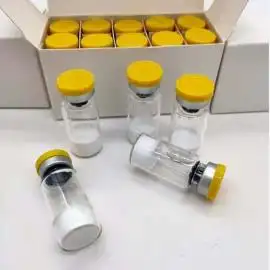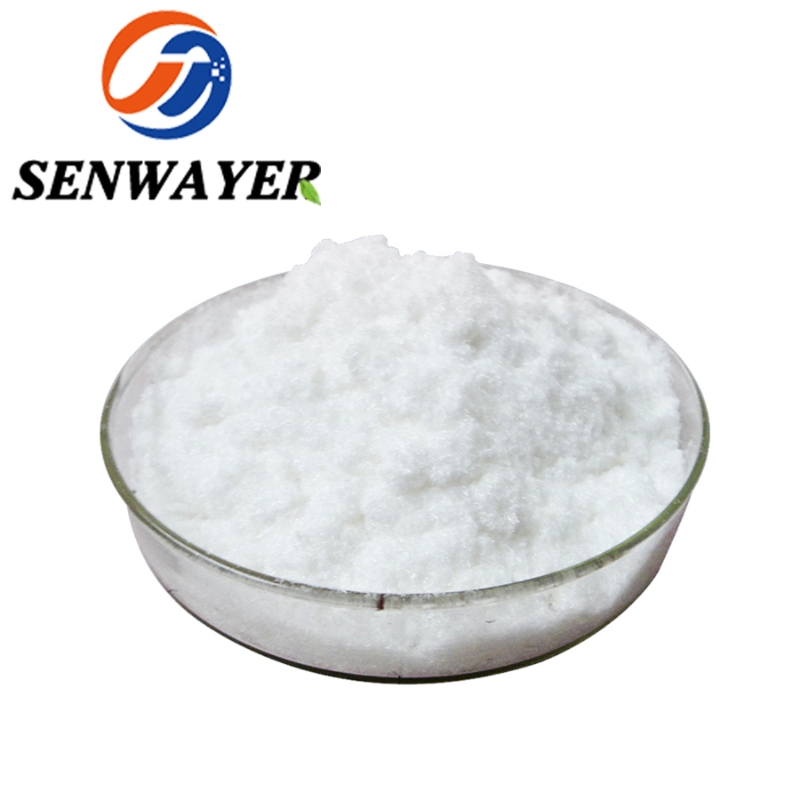-
Categories
-
Pharmaceutical Intermediates
-
Active Pharmaceutical Ingredients
-
Food Additives
- Industrial Coatings
- Agrochemicals
- Dyes and Pigments
- Surfactant
- Flavors and Fragrances
- Chemical Reagents
- Catalyst and Auxiliary
- Natural Products
- Inorganic Chemistry
-
Organic Chemistry
-
Biochemical Engineering
- Analytical Chemistry
-
Cosmetic Ingredient
- Water Treatment Chemical
-
Pharmaceutical Intermediates
Promotion
ECHEMI Mall
Wholesale
Weekly Price
Exhibition
News
-
Trade Service
(3R,4S)-1-((benzyloxy)carbonyl)-4-ethylpyrrolidine, also known as benzyl p-toluenesulfonate, is a naturally occurring compound that has a wide range of applications in the chemical industry.
This compound is synthesized from p-toluenesulfonic acid and benzyl alcohol, and it is commonly used as a catalyst in the production of various chemicals and materials.
One of the most significant applications of benzyl p-toluenesulfonate is in the production of polyester resins.
Polyester resins are widely used in the manufacture of plastic products, such as bottles, containers, and sheets.
The compound is used as a catalyst in the polycondensation reaction, which involves the reaction of an alcohol with an acid to form a polyester.
The use of benzyl p-toluenesulfonate as a catalyst results in the formation of more uniform and consistent polyester resins, which are essential for the manufacture of high-quality plastic products.
Another application of benzyl p-toluenesulfonate is in the production of alkyd resins, which are commonly used in the manufacture of paint, varnish, and printing inks.
The compound is used as a catalyst in the condensation reaction, which involves the reaction of an alcohol with an acid to form an alkyd resin.
The use of benzyl p-toluenesulfonate as a catalyst results in the formation of more durable and resistant alkyd resins, which are essential for the production of high-quality paint and varnish.
Benzyl p-toluenesulfonate is also used in the production of elastomers, which are polymers that are characterized by their flexibility and elasticity.
The compound is used as a catalyst in thepolymerization reaction, which involves the reaction of monomers to form a polymer.
The use of benzyl p-toluenesulfonate as a catalyst results in the formation of more uniform and consistent elastomers, which are essential for the manufacture of high-quality rubber products.
The compound is also used in the production of dyes and pigments, which are widely used in the textile, paper, and plastic industries.
Benzyl p-toluenesulfonate is used as a catalyst in the oxidation reaction, which involves the oxidation of a substance to produce a dye or pigment.
The use of benzyl p-toluenesulfonate as a catalyst results in the formation of more vivid and colorfast dyes and pigments, which are essential for the manufacture of high-quality textile and paper products.
In addition to its applications in the chemical industry, benzyl p-toluenesulfonate has also been used in the pharmaceutical industry as a catalyst in the production of various drugs and medicines.
The compound is used in the synthesis of certain antibiotics, anti-inflammatory drugs, and painkillers, among others.
The use of benzyl p-toluenesulfonate as a catalyst results in the formation of more purified and potent drugs, which are essential for the treatment of various medical conditions.
In conclusion, benzyl p-toluenesulfonate is a versatile compound that has a wide range of applications in the chemical industry.
Its ability to catalyze various chemical reactions makes it an essential component in the production of various chemicals and materials, including polyester resins, alkyd resins, elastomers, dyes and pigments, and drugs.
The compound has been widely used in the industry for many years and is expected to continue to play a significant role in the production of chemicals and materials in the future.







